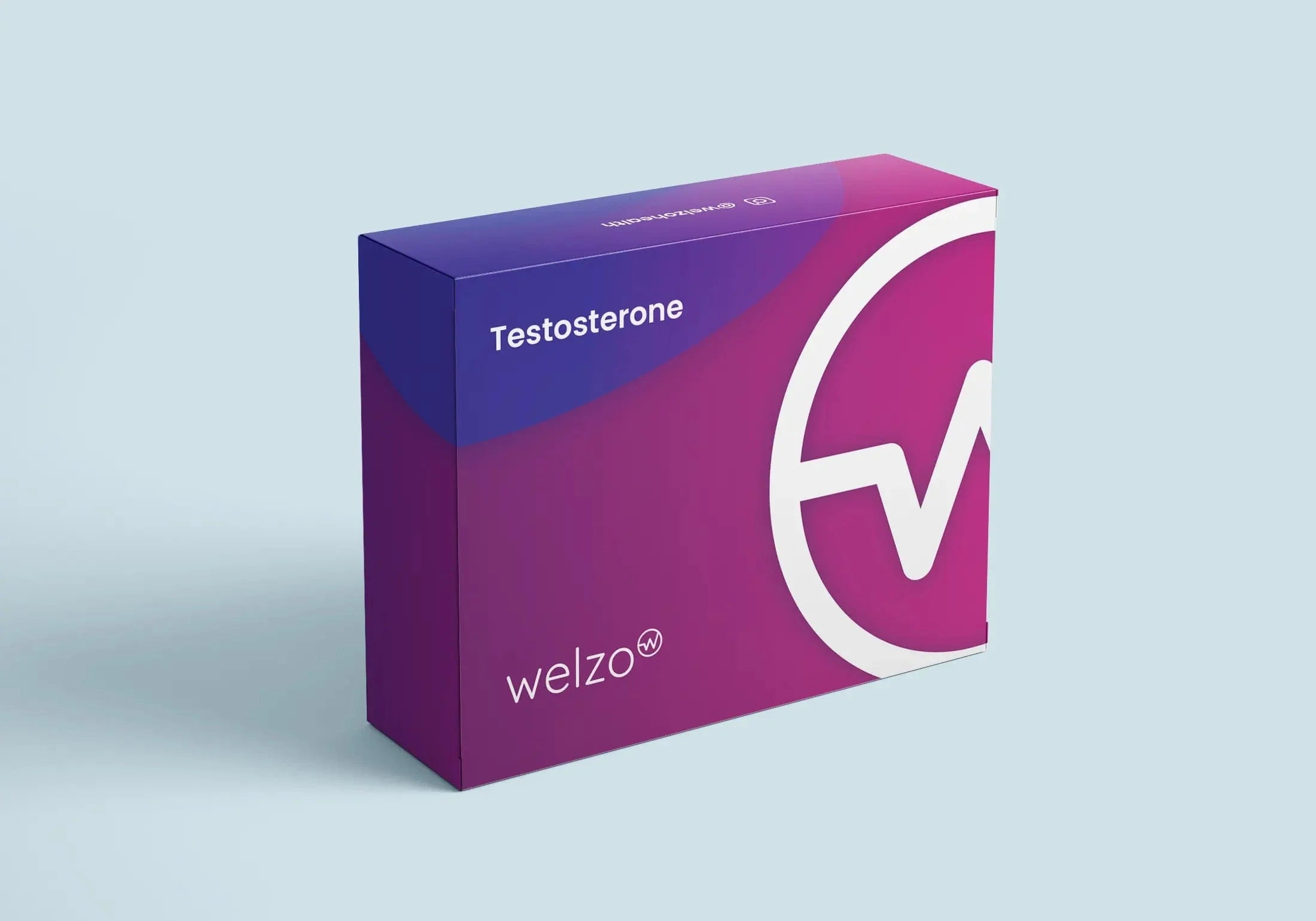Testosterone Production: Where is it made?


Testosterone, at its core, is a steroid hormone essential for human development and functionality. It's particularly vital for the development of male attributes and male reproductive tissues. Beyond that, testosterone also supports the maintenance of bone density, muscle mass, and the proper distribution of body fat. The importance of testosterone extends to mental wellbeing, with it playing a role in mood regulation and cognitive performance. One cannot emphasise enough how fundamental testosterone is to both the physical and psychological fabric of an individual. For instance, in the case of men who suffer from hypogonadism (a condition where the body doesn't produce enough testosterone), symptoms such as fatigue, mood disturbances, and diminished sexual desire are common, says Dr. Oliver Stone, a noted endocrinologist in the UK.
While testosterone is often associated with masculinity, it plays a role in both genders. In men, testosterone is primarily produced in the testes and facilitates the development of male physical characteristics such as a deep voice, beard, and the production of sperm. Women, on the other hand, produce testosterone in their ovaries and adrenal glands, albeit in smaller amounts. In females, testosterone contributes to bone strength, muscle mass, and is crucial for sexual desire and fertility. To put it into perspective, imagine two distinct orchestras: one representing men and the other representing women. Testosterone would be a primary instrument in the male orchestra but still plays a significant, albeit less prominent role, in the female ensemble.
The duration testosterone remains active in the bloodstream varies, with most of it being rapidly converted to either dihydrotestosterone (DHT) or estradiol (a form of oestrogen). Typically, testosterone has a half-life of approximately 10-100 minutes in the bloodstream. However, its effects on tissues, once converted to DHT or estradiol, may last longer. It's this conversion that creates a lasting impact on various physiological processes, as noted by Dr. Amelia Foster, a hormone specialist in the UK.

Buy Testosterone Blood test online here.
The human body is an intricate system, and the production of testosterone takes place in specific areas depending on gender.
In men, the testes are the testosterone factories. Within these, the Leydig cells are especially critical. Situated between the seminiferous tubules in the testes, these cells convert cholesterol into testosterone. This intricate process is crucial for male physiological development and the maintenance of male characteristics.
While women produce significantly lower amounts of testosterone than men, it remains crucial for their health and well-being. The ovaries and adrenal glands jointly manage this production. Maintaining an optimal testosterone level in women ensures healthy bone density, muscle strength, and sexual function.
The relationship between the brain, particularly the hypothalamus, the pituitary gland, and the testes is often termed the hypothalamic-pituitary-gonadal (HPG) axis. This axis regulates the synthesis and secretion of testosterone.
The hypothalamus secretes the Gonadotropin-releasing hormone (GnRH), which then signals the pituitary gland to produce LH and FSH. LH stimulates the Leydig cells in the testes to produce testosterone. FSH, along with testosterone, plays a crucial role in sperm production.
GnRH acts as a master regulator in the HPG axis. By stimulating the pituitary gland, it indirectly influences testosterone production and, consequently, has a profound effect on reproduction and other testosterone-dependent functions.
Ageing is a natural process, and with it, testosterone levels in men usually start to decline gradually from their 30s or 40s. Reduced testosterone in older age can lead to symptoms such as decreased muscle mass, bone density, mood changes, and reduced sexual desire. However, it's worth noting that not every ageing male will experience these symptoms, and the relationship between ageing and testosterone is multifaceted, says Dr. Richard Hammond, a geriatric specialist in the UK.
Lifestyle choices can profoundly impact testosterone levels. Regular exercise, a balanced diet, and adequate sleep can potentially boost testosterone. Conversely, chronic stress, excessive alcohol consumption, and obesity can lead to reduced levels. For example, obesity is often linked to lower testosterone levels because fat cells metabolise testosterone to estradiol, thereby reducing its quantity.
Certain medical conditions and treatments can negatively impact testosterone production. Conditions such as Type 2 diabetes, chronic liver or kidney disease, hormonal disorders, and infections can contribute to reduced levels. Additionally, treatments like chemotherapy or radiation for cancer can also interfere with testosterone production. Always consult with a healthcare provider, like Dr. Sarah Mitchell, an oncologist in the UK, for personalised advice.
Low testosterone levels can arise from numerous causes, both inherent and external. It might be due to genetic factors, injury to the testes, chronic medical conditions like liver or kidney disease, hormonal disorders, or treatments such as chemotherapy. Chronic stress, obesity, and certain medications can also contribute to reduced testosterone. For a comprehensive understanding, it's always advisable to consult with a healthcare professional, advises Dr. Hannah Clarke, an endocrinologist in the UK.
No, women inherently produce significantly less testosterone than men. While testosterone is primary in men for many physiological functions, it's present in much smaller amounts in women, playing roles in bone density, muscle strength, and libido. In comparison, a man's testosterone levels can be up to 20 times higher than a woman's.
Several natural methods can potentially boost testosterone. Engaging in resistance training, ensuring a balanced diet rich in zinc and vitamin D, managing stress through practices like meditation, and getting adequate sleep can all contribute to healthy testosterone levels. Moreover, moderating alcohol consumption and maintaining an optimal weight can further enhance testosterone production.
Men with decreased testosterone might experience fatigue, mood disturbances, diminished sexual desire, reduced muscle mass, and decreased bone density. Women, on the other hand, might witness changes in menstrual cycles, reduced libido, fatigue, and mood swings. The intricacies of symptoms should always be discussed with a doctor, suggests Dr. Catherine Rowe, a hormone specialist in the UK.
Indeed, testosterone does play a role in mood and behaviour. An optimal level can lead to feelings of well-being and reduced depression. Conversely, low levels might contribute to mood disturbances and irritability. Moreover, very high levels can sometimes be associated with aggressive behaviour.
Total testosterone refers to the overall quantity in the body, including the part attached to proteins. Free testosterone, however, refers to the fraction that isn't bound and is biologically active. It's crucial to measure both since free testosterone is the active form that exerts the physiological effects, according to Dr. Leonard Davis, a clinical researcher in the UK.
A blood test, often drawn in the morning when levels are highest, is the most common method for assessing testosterone levels. Other advanced technologies like liquid chromatography-tandem mass spectrometry can also be used for precision.
Typically, in adult males, levels range from 280 to 1,100 nanograms per decilitre (ng/dL), while in females, it's between 15 and 70 ng/dL. However, these ranges can vary based on the laboratory that analyses the blood sample.
TRT can be beneficial for men with very low levels, potentially improving libido, mood, and bone density. However, it's not devoid of risks. It can increase the likelihood of sleep apnea, cause skin reactions, and limit sperm production. The full scope of TRT should be discussed extensively with a healthcare provider.
Fenugreek, vitamin D, zinc, and D-aspartic acid are some supplements that have been suggested to boost testosterone levels. Though, their effectiveness can vary and it's essential to use them under professional guidance.
Altering testosterone levels artificially can lead to side effects like oily skin, acne, smaller testicles, and an increased risk of heart conditions. It’s always essential to weigh the benefits against potential risks.
Recent studies have delved into the genetic components influencing testosterone production. Specific genes, when mutated, might lead to altered testosterone levels, which can impact overall health.
Some environmental toxins, like BPA, commonly found in plastics, have been linked to disrupted testosterone levels. Such toxins, termed endocrine disruptors, can mimic or interfere with the body's hormones.
The medical community continuously seeks improved methods for testosterone therapy. One such advancement is the development of skin patches that provide a steady release of testosterone.
Ensuring balanced testosterone levels is pivotal for both physical and psychological health. It aids in maintaining muscle mass, bone density, mood regulation, and a myriad of other functions.
The endocrine system is a complex web, with one hormone often influencing another. Thus, it's essential to understand that altering testosterone can have cascading effects on other hormones.









